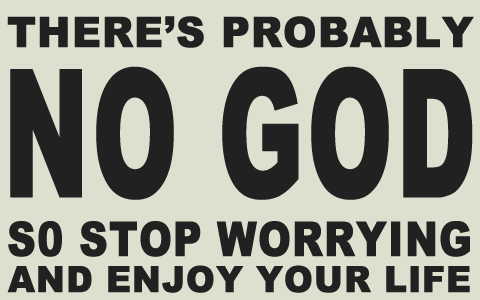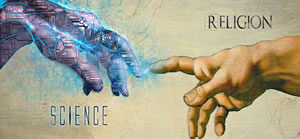
by Dr Stuart Lange | 24 May , 2019 | Christianity and Social & Moral Issues, Christianity in New Zealand
Please spread the word
Do you believe the church in New Zealand needs to be built up, to work together better, and to have greater influence? Do you believe the Christian community needs to speak better into society, with both grace and truth? Do you believe we all need to guard and nurture the spiritual unity we have in Jesus?
If so, please help us get the NEW ZEALAND CHRISTIAN NETWORK to be better known. Help us get many more Christian people and churches connected with us, receiving our newsletter, following on FB, using the website, making contact, partnering with us.
The NZCN exists to gather (to help bring evangelical/charismatic/Pentecostal NZ Christians together in closer fellowship and a common Gospel cause), to build (to help resource, strengthen and build up the church in New Zealand and increase its constructive influence on society), and to speak (to speak into both church and society, with grace and truth).
Four issues currently facing the government and the citizens of Aotearoa New Zealand are outlined below.
We appreciate you doing whatever you can to strengthen NZCN’s connections with your church, friends and family.

Dr Stuart Lange (interim National Director)
Major issues we need to be informed about, to pray about, and to talk to our MP about
The critical second reading of this Bill, which would legalise euthanasia and assisted suicide in New Zealand, is likely to take place very soon, possibly on June 20.
1. The End of Life Choice Bill
An overwhelming 91.8% of the submissions to the Justice Committee were opposed to the Bill (and 93.5% of submissions from medical personnel), the report of the Justice Committee identified major problems with the Bill, but there remains a risk that a majority of MPs may vote for the Bill.
Please be praying, and please seriously consider clearly (but courteously) communicating your concerns to your MP – and the same applies to the issues which follow.
2. Proposed abortion ‘reform
The Law Commission has considered proposals for changing the law around abortion, to reduce the stigma of abortion, to increase the freedom of women to make their own decisions, and to increase the accessibility of abortion. It is proposed to take abortion out of the Crimes Act, and that performing an abortion be regarded as simply a health procedure. The inclusion of abortion within the Crimes Act recognises that abortion involves bringing about the death of human foetus. Making abortion merely a health procedure implies that unborn babies are merely organic material, with no human rights.
At present, performing an abortion is illegal unless it falls within certain exceptions: abortion is legally permissible up to 20 weeks’ gestation if authorised by two certifying consultants, if there is (a) ‘serious danger to the life, or physical or mental health’ of the mother (including pregnancy as a result of sexual violation), or (b) serious foetal abnormality, or (c) if the pregnancy results from incest, or (d) the mother is ‘severely subnormal’ (has significant mental, physical or intellectual impairment). After 20 weeks’ gestation, abortion must be necessary to save the life of the woman or to prevent serious permanent injury to her physical or mental health.
All three proposed models involve further liberalisation of New Zealand’s abortion law, and would remove the requirement for two certifying consultants. Model A would make abortion available to any woman (in consultation with her doctor) for any reason, at any stage of pregnancy. Model B would make abortion available to any woman, subject to a statutory test: ‘If the health practitioner who intends to perform the abortion reasonably agrees the abortion is appropriate in all the circumstances, having regard to the woman’s physical and mental health and wellbeing’. Model C would apply Model A (abortion for any reason, at any stage, with no statutory test) to pregnancies up to 22 weeks’ gestation, and would apply Model B (statutory test and decision made by the doctor who intends to perform the abortion) to pregnancies after 22 weeks’ gestation.
None of the three proposals appear to demonstrate regard for the rights of unborn children. Surely a just and humane society, along with being concerned for the health and wellbeing of women, should be eager to protect those who are among its most vulnerable children, the unborn. All abortion ends a life, for whatever reason, but late-term abortion is especially abhorrent. Abortion can also often involve long-term consequences for the mothers. If abortion is to become a normal health procedure, there are also questions around whether doctors and nurses would be free on conscientious grounds to decline to participate in abortions. Does New Zealand really want or need these changes?
3. Proposals for ‘hate speech’ legislation
This is an issue full of complications and dangers.
While it is already a crime to incite hatred and violence against anyone (and rightly so), and there is no place for the sort of hatred which lies behind racism and terrorism, it could become a significant threat to freedoms of religion and of speech if ‘hate speech’ became defined or interpreted as expressing religious or moral views which some groups might complain are offensive and ‘hateful’ and thus a criminal offence.
Could it one day become illegal, for example, to publicly proclaim that Christ is the way, the truth and the life (something which may offend some atheists or members of another faith), or to admit the belief that God intended marriage as a union of one man and one woman? Could expressing such views lead to dismissal from one’s job or profession? Would it be illegal to quote certain parts of the Bible? Would such laws be applied equally: would atheists and members of minority faiths be equally at risk of breaking the law, or would Christians be subject to particular restrictions?
The recent dismissal in Australia of rugby star Israel Folau indicates how freedoms of religion and expression (whatever we may think about how wisely those rights were exercised) are now under threat in the public sphere.
4. The legalisation of marijuana
Making marijuana legal and freely available would have major negative effects on New Zealand society, not least in terms of health, mental health, road safety, and the safety of the workplace.
Why would we even consider this move? Have we not learned from the huge costs to society tobacco use and alcohol abuse? Do we really need another such harmful industry, peddling its products and enjoying the profits while downplaying the very significant social and health costs?

by Gavan O'Farrell | 22 May , 2019 | Christianity in New Zealand
REASON AND EVIDENCE
Every now and then, one reads in the press that “religion is irrational”. In fact, it occurs with increasing frequency – far more often than I would like, speaking as a churchgoer.
Or it might be “belief in God is irrational”, or someone might refer to “faith vs reason” as phenomena in mutual opposition. Or, belief in God might be frankly compared with belief in the Tooth Fairy or Santa Claus or someone even more remote and implausible.
This view of religious belief has been around for some time. What’s changed, besides the frequency of the statement, is the confidence with which it is made. It used to be a claim, now it’s more like a statement of accepted fact, as though it were preceded by “And, of course” or “As we all know”.
Although it’s a popular view in some quarters, it is demonstrably untrue. I’ve noticed that people of faith use reason just as anyone else does. It’s unavoidable: if you don’t apply the rules of logic (to draw reliable conclusions from stated facts and to adopt consistent conclusions), you’ll get called on it every time and attempts at communication would just break down. This doesn’t happen. Whatever we people of faith are, we’re not irrational.
The reason we sometimes reach different conclusions from our critics is not that we don’t use the common logic, it’s because we rely on additional facts (about God) to begin with. I should say “factual assertions” as these facts are contentious.
Speaking from a scientific viewpoint, atheist apologists typically require empirical evidence (evidence which, ultimately, appeals to our senses) to support any factual assertion. This is why we theists might be told, “Come back with some evidence and we’ll talk.”
This is the actual objection to belief in God.
So, in public critique of theism, “reason” and “rationality” are actually a red herring. Some of our critics are aware of this (it’s obvious enough, after all). So, if you were to ask why they call us “irrational”, I can only surmise that it’s because that’s what they “were told”. Tracing it back through atheist whispers, I think you’ll find that the promoters of this view believe “irrational” makes for better polemical marketing than “not evidence-based”. And they’re right. Also, “irrational” is insulting, which is a plus for many of our critics.
Still, the real objection to belief in God – the lack of “evidence” – is serious and important.
For the sake of argument, I accept that the required evidence is not available. I cannot demonstrate how to reliably observe God with the naked eye, with a telescope, microscope or other visual aid, or with any other sense or sense-enhancing technology. I can point to anecdotal evidence of millions of people who are neither idiots nor liars, but atheist apologists say this is of no value. This is unreasonable of them, but it is not the main problem with their objection to theistic belief.
The objection is misconceived at the outset. The demand for scientific proof of God derives from the idea (highly contentious) that everything is amenable to empirical or scientific inquiry. This may be true of everything in what is generally called the “natural world”, but the appropriate scope of a conversation about whether or not God exists is all of reality, not just the natural world. No-one has established that they are the same and there is no reason to assume that they are.
If I were somehow impartial on the subject (I can’t really pretend to be), I would observe that the atheists have rejected the theistic “delusion” and replaced it with an unproved assumption. And remark that this is not an intellectual advance.
Insistence on evidence limits the scope of the discussion about God, which falsely (and unfairly) loads the discussion towards no-God. God’s existence isn’t the kind of [alleged] fact that can be investigated empirically or scientifically.
I appreciate that science is indispensable and authoritative for inquiring into the natural world. And I understand why science-minded atheists might feel uneasy venturing into a discussion in which their scientific tools are of no use. However, the scope of the discussion should not be dictated by their methodology or convenience.
There is more directly analytical way of approaching the topic. The scientific (or “empiricist” or “materialist”) world-view is based on the following principle:
It is reasonable to believe that a statement is true (including a statement about something existing) only if the truth of the statement is proved empirically (ie by “evidence”). It is reasonable to believe a statement might be true only if its truth is provable (at least potentially) empirically.
I’ve done my best to represent the position correctly and fairly. The second sentence is added to accommodate the fact that science is still learning and, in honest hands, doesn’t make absolute claims about facts and knowledge.
The typical atheist believes the above statement of principle to be true. The truth of the statement has not been proved empirically. Nor is its truth provable empirically. The truth of the statement is assumed.
It is this statement which appears to give rise to the assumption that reality consists entirely of the natural world – amenable to empirical observation (or scientific inquiry).
Most people, probably everyone, have a starting-point in their thinking – a starting-point from which they proceed forward and outward. They aren’t necessarily aware of it. My starting-point is God. The typical atheist’s is the above statement. You can discover someone’s starting-point by asking “Why?”. Whatever the topic, if you keep asking “Why?”, you will find yourself delving more deeply into the other person’s thinking, layer by layer and, when you no longer get a different answer, you’ve reached their starting-point. I’ll end with “Because of God” or “Because God is God”, or similar.
There is a serious logical advantage to the starting-point of God: I take a leap of faith to God and always acknowledge that I’ve done so, so my thinking is consistent. The atheist takes a leap of faith (to the truth of the above statement) and, from that moment, scorns leaps of faith. That sequence of thought is profoundly inconsistent, indeed arguably “irrational”.
I am not arguing here for the existence of God (or anything else supernatural), much less against science. I am identifying and critiquing the assumption that reality consists only of the natural world. This assumption involves locking one’s mind inside an “empiricist box” and believing that, because it’s a very large box (as vast as the natural world), it’s not a box at all. This box represents a self-imposed and arbitrary limitation on reality and one’s ability to apprehend it.
The empiricist box is no place to find out whether or not God exists. Even if reality does consist only of the natural world, this will not be discovered inside the box. To think outside such a commodious box might seem like a lot to ask, but a serious God inquiry has to be seriously intrepid.
No-one likes their assumptions being challenged, or even exposed. There was a time when a person like me could safely assume “the other person” believed in God as much as I do. That would be a while back. I’ve had to learn to mingle and discuss far away from this comfort zone.
Being only human, atheists and other sceptics also relish intellectual and social comfort. I can’t help but think the empiricist box is a place of refuge for the sceptic. Atheists are not all as triumphant and disdainful, or even as confident, as their public apologists. Besides, most sceptics are not atheists at all, they just “don’t know”: many are actually curious, while many others find the subject of God exhausting or frustrating, or embarrassing. Many others, of course, are simply not interested.
Because it is superficially impressive, the empiricist argument provides a pretext for dismissing religious claims on reflex and for not pursuing any genuine curiosity about God.
The argument is actually misconceived and irrelevant, which is a problem for those many atheists who value intellectual integrity and would like their disbelief to have a sound foundation.











